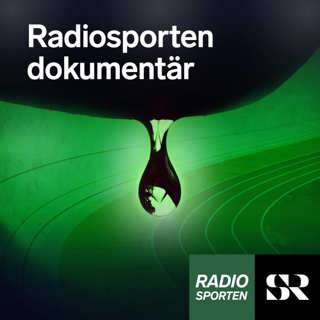
Living in fear on South Africa's farms
In February, American President Donald Trump signed an executive order which said that South African Afrikaners - descendants of mainly Dutch settlers who arrived in the 17th Century - could be admitted as refugees in the USA as they were "victims of unjust racial discrimination". President Trump’s move to prioritise the resettlement of white South African farmers reignited global controversy when he referenced what he has described as a “genocide” against white farmers. Thousands of South Africans have now applied for refugee status in the USA, and are waiting to potentially relocate there. Farmers in South Africa are predominantly white, but farmers and farm workers of all races fear theft and violent crime in the country. Claire Mawisa is a reporter for BBC Africa Eye and recently travelled to meet farmers in South Africa. Kings, or chiefs, in Ghana don't hold much formal or political power, but they are hugely important to people and hold a lot of cultural and social influence. But there are also powerful royal women in Ghana. They've held power in certain parts of the country for a long time, but it seems their influence is now on the rise. It is a story that caught the eye of Stefania Okereke of BBC Focus on Africa. This episode of The Documentary comes to you from The Fifth Floor, the show at the heart of global storytelling, with BBC journalists from all around the world. Presented by Faranak Amidi. Produced by Caroline Ferguson and Laura Thomas.
20 Dec 26min

Jewish Australians on the Bondi Beach attacks
The Australian government says it will crack down on hate speech following the deadly shooting that targeted a Jewish festival at Bondi Beach. People had come together to celebrate Hanukkah when two gunmen opened fire, killing fifteen people.Australia’s new laws aim to target those who spread “hate, division and radicalisation". In our conversations, Jewish Australians discuss their personal experiences of antisemitism in Australia.“You see the arson, you see the graffiti, you see the protests, you see the slogans, you see the people delegitimising Israel and its right to exist,” Sharon tells us. “And the jump is, unfortunately, not that far for people to then delegitimise the right of Jews to be in this country.”Reports from across the world suggest that antisemitism is on the rise, particularly since the war between Israel and Hamas in Gaza. We also bring together Jews in the US, Belgium and Germany who share their experiences of attacks on their community, and discuss what can be done about it.Presenter: James Reynolds
20 Dec 23min

Prayers through the checkpoints
Imagine being able to see your place of worship, but not be able to reach it. For many Palestinian Muslims in the occupied West Bank and East Jerusalem, stricter Israeli security measures, rising tensions with settlers, and movement restrictions introduced after the 7 October attacks, have made access to mosques increasingly challenging. Reporting from Hebron and East Jerusalem, Emily Wither explores how these pressures are reshaping the spiritual lives of worshippers living at the heart of one of the world’s most contested religious landscapes.
19 Dec 26min

Elephant conservation in Botswana
Botswana is home to about a third of Africa’s remaining savanna elephants, over 130,000. But it is a burden as well as a blessing. It puts pressure on local communities, and the cost of conservation is huge. Climate change means elephants are moving into new areas in their search for water and in some parts of this sparsely populated country there are more elephants than people. Jo Dwyer travels to northern Botswana, where safari-based tourism helps drive the economy. Elephants bring in the tourists, but conservation is a balancing act.
18 Dec 26min

Introducing The Bomb: Kennedy and Khrushchev
As the USA and Soviet Union race for supremacy in the 1960s, Premier Khrushchev sizes up his rival, President John F Kennedy. Presenters Max Kennedy and Nina Khrushcheva, relatives of the superpower leaders, explore their rise to power - one wealthy, smooth-talking and Harvard educated, the other a hardened Soviet war leader from a peasant family. As they prepare to meet for the first and only time as world leaders, the stakes could not be higher: they are fierce rivals in the race to build ever more devastating missiles. This is the personal and political history of the Cuban Missile Crisis. Nina Khrushcheva is the great-granddaughter of Nikita Khrushchev and Max Kennedy is the nephew of President John F Kennedy, and the son of Robert F Kennedy. To hear more episodes, search for The Bomb, wherever you get your BBC podcasts.
17 Dec 38min

Stolen brides of Kazakhstan: The fightback
In plain sight, in a modern city, a colleague offers to drive you home after work. How would you respond? One woman in Kazakhstan accepted the lift only to find herself kidnapped or ‘stolen’ as a bride. She got away, rescued by the police, but for many Kazakh women kidnap leads to marriage. Human Rights lawyer Khalida Azhigulova reckons that thousands of women are forced into marriage each year in Kazakhstan, including many who are abducted. Some women even find that a wedding has already been arranged by the time a kidnapper gets her home. Now, after 20 years of campaigning by Khalida and other activists, legislators have passed a law making forced marriage a crime. Monica Whitlock and Roza Kudabayeva travel to Kazakhstan to meet women who have been kidnapped. This episode of The Documentary comes to you from Assignment, investigations and journeys into the heart of global events.
16 Dec 27min

Jim Henson's Creature Shop: Back to Fraggle Rock
Sean Allsop goes behind the scenes inside the legendary Jim Henson's Creature Shop in New York, where fabric and materials bring life to characters beloved around the world. Sean joins the team as they work on their famous franchise Fraggle Rock, a series which started in the mid-80s. They're currently creating human-size walk-about characters for a brand new live show. Creative supervisor Jason Weber and the team work through costume fitting, sculpting, and go through archives to make the perfect Fraggle down in Jim Henson's Creature Shop.
15 Dec 29min

A makeover for Syria's interim leader?
One year after the fall of Syria's dictator, Bashar al-Assad, interim president Ahmed al-Sharaa has undergone a significant image makeover. He's regularly seen playing basketball or pool on social media and his posts are amplified by a network of government-backed influencers. BBC Monitoring's Samia Hosny has been watching and reflects on what this PR campaign is saying – and what it isn't. The special administrative region of Macau on the south coast of China is sometimes referred to as the Las Vegas of the East. The gaming hub attracts tourists from all over the world, as well as from mainland China and Taiwan. But amid the glitzy casinos and hotels, Macau has just opened its very first luxury resort hospital, in the hope of capitalising on the medical tourism industry. The BBC's Osmond Chia reports from Singapore. 17-year-old Janvi Jindal, from Punjab state in India, has recently achieved 5 Guinness World Records in freestyle skating. She was able to perform, amongst other things, thirty-two 360 degree rotations in 30 seconds – whilst balancing on her inline skates. BBC reporter Sarabjit Singh Dhaliwal went to meet Janvi and her parents. This episode of The Documentary comes to you from The Fifth Floor, the show at the heart of global storytelling, with BBC journalists from all around the world. Presented by Faranak Amidi. Produced by Laura Thomas, Caroline Ferguson and Hannah Dean. (Photo: Faranak Amidi. Credit: Tricia Yourkevich.)
13 Dec 26min





















